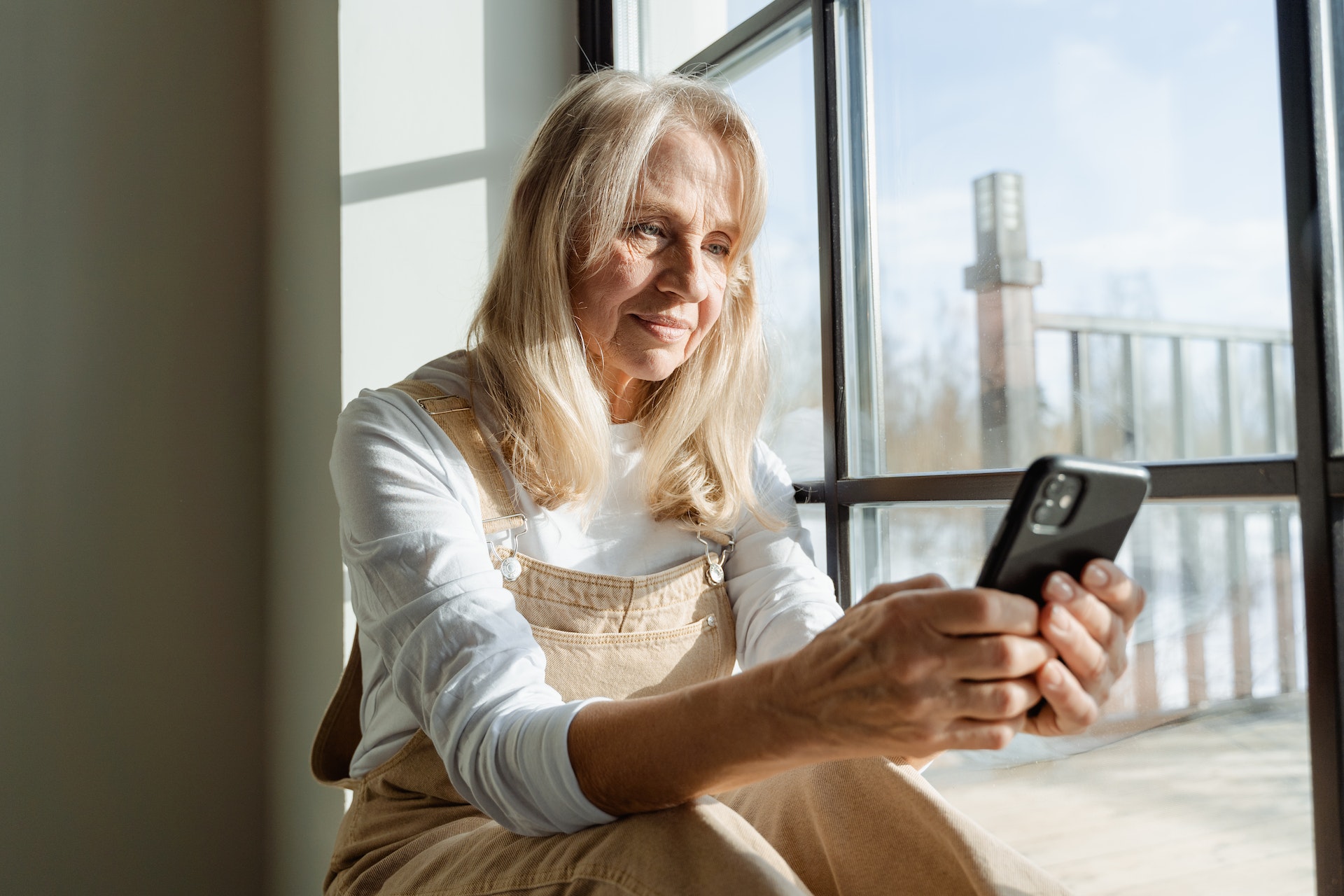You may use online platforms to organise and manage every area of your daily life but when it comes to your caring role, you may not think about how everyday technology can help.
There are lots of everyday technology solutions you can use to make your life easier and support the person you care for.
Suggested ideas
- Shop online
- Manage finances online
- Manage health and care services online
- Manage time online
- Bring the family closer online
- Connect with other carers online
- Online training
- Get some gizmos and gadgets
Shop online
Shopping for others can be time consuming. Use online shopping to save time and control how much you spend. You can set up weekly deliveries and use smart tools such as a standard shopping list which you start with for each shop – so you don’t need to spend time adding all the basics every time you do a new shop. All the major supermarkets offer delivery for online orders and lots of smaller independent retailers do the same (there may be delivery charges).
Manage finances online
Managing your finances for yourself or others online can save significant time and complexity by allowing you to bypass bank queues. You can conduct your banking transactions safely and securely without leaving the comfort of your home. Online banking gives you around the clock access to all your accounts and statements and you can monitor your transactions and balance.
You can also pay your bills or the bills of the person you support digitally. You can schedule a single payment or you can set up recurring payments and you can see when your payment will arrive.
Manage health and care services online
You can benefit from online GP services, including access to your own patient summary record or the record of the person you look after with their permission. When signed up to online services via your GP practice, you can book appointments, order repeat prescriptions and see some of your patient records such as allergies, medication and test results. In some areas, patient records show much more. Many surgeries offer these basic services, so ask how you can arrange yours.
In some areas, it is possible to have remote consultations carried out using email or webcam, reducing the need for GP or hospital visits.
Many local authorities or health and social care trusts (in northern Ireland) offer online carers’ assessments and needs assessments, and you can find information about domiciliary care services and residential care services online, including Care Quality Commission ratings. Some care services are available through online platforms that match a care need with available support within your own postcode.

Manage your time online
You can use group emails, shared group calendars or apps to coordinate care with other people in your family or network. Carers UK has developed its own care co-ordination app, Jointly www.jointlyapp.com, which helps make caring easier and more organised. This way everyone can be kept in the loop in one go, rather than having to contact different people individually.
Bring the family closer online
These days many families are scattered not only around the country but around the world. Use free services like Zoom or WhatsApp to video-call your relatives, or use FaceTime if you have an Apple device. Face-to-face contact – even at a distance – can feel more personal than a phone call. As a carer, you can discuss appointments and plan care with other family members, even having several people on screen at once for a conference call. Or the person you care for could use it to stay connected with family and friends who don’t live so nearby.

Connect with other carers online
If it feels like no one understands what you’re going through, it can be reassuring to know there are thousands more out there who do.
You can join Carers UK, and gain access to our online community for carers 'Carers Connect'. Get support, share advice, create new relationships or just share experiences with others who understand – it’s open to all our members and membership is free.
You can also use social media like Facebook and Twitter to connect with others who know what you’re going through. And some workplaces now offer carer networks to support their employees who are caring, providing information but also an opportunity to share experiences and offer support.
Online training
Online training or courses can be ideal if you're busy or unable to leave the house for long. Carers UK has developed a range of online training resources for carers covering topics such as the skills gained through caring, emotional and physical wellbeing and nutrition.
You can also try over 600 free online learning courses on a variety of subjects from the Open University, OpenLearn or Coursera.
YouTube is a great source of 'how to' videos that can provide useful and practical information.
Get some gizmos and gadgets
There are many gizmos and gadgets to make life easier, many of which have been designed with disability or age in mind.
In addition to home adaptations like grab rails and hoists, kitchen gadgets like ring-pull openers, two-handled cups, tap turners and kettle tippers can also make life easier. Riser recliner chairs can offer comfort and central heating control systems can make it easier to control your heat – and your bills! See more in our section on smart tech and handy devices for the home.
Gizmos and gadgets can also be powered by technology – smoke and gas detectors, alarms and sensors are now familiar in health and care, but today we also have wearable technology that discreetly gives reassurance at home or when people are out and about. From simple mobile apps to complex sensor systems, there are already many products available to make life a little easier. See more in our section on technology.
Latest updates

Charity calls for action with half of Scotland’s unpaid carers cutting back on food and heating amidst deteriorating health

Scotland’s National Carer Organisations launch election manifesto

Full Time Caring: A Journey in Mastering Mindfulness - Part 3

Carers UK marks 60 years of the carers’ movement and women’s leadership at Mary Webster Lecture
Got a question about caring?
Every day we hear from people who need help with looking after a friend or family member
Become a member for free
Joining Carers UK is free and takes just a few minutes.
